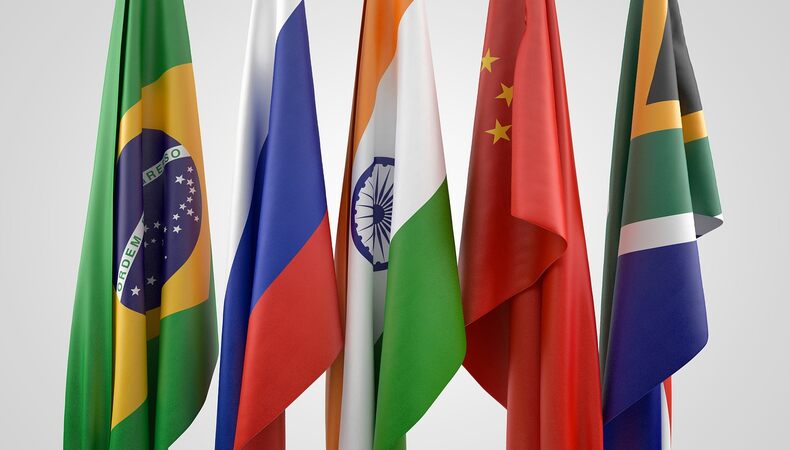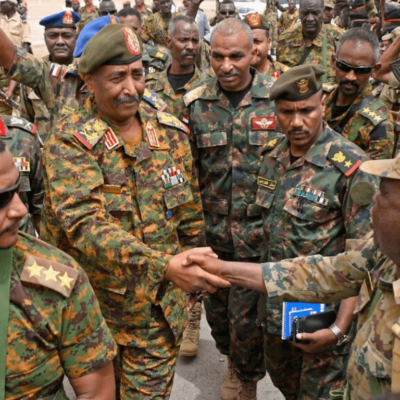Turkey’s Potential BRICS Membership: A Shift in Global Alliances?

By joining the BRICS grouping, a collection of rising-market countries seeking to challenge Western political and economic dominance, Turkey might shortly make a major change in the nature of its diplomatic ties. A spokesman for Turkey’s ruling AK Party recently stated that a procedure is “underway” for the nation to join BRICS, a step that, should it be completed, would make Turkey the first NATO member joining this growing worldwide alliance.
Originally comprising Brazil, Russia, India, and China (with South Africa joining later), the BRICS group has long challenged the accepted world order headed by the United States and Europe. Countries including Ethiopia, Iran, Egypt, and the United Arab Emirates have joined the bloc over time, therefore broadening it. Saudi Arabia most lately got an invitation, although it has not actually joined yet. Turkey’s possible membership in the alliance now might complicate world affairs still another level.
Turkey’s Dream of Brideship to BRICS
Spokesperson for Turkey’s ruling party, Omer Celik, underlined the nation’s aim to join BRICS and said that President Recep Tayyip Erdoğan has repeatedly expressed this wish. “Our ask on this matter is straightforward. This process is under action in this framework, but as Celik informed reporters in Ankara, there is no specific development on this underlined by Reuters.
Joining BRICS could provide Turkey with a strategic diversification of its foreign contacts. Long a candidate for EU membership, the nation has seen tense relationships with its Western partners recently. Tension inside the military alliance has resulted from Turkey’s continuous diplomatic connections to Russia despite NATO’s criticism of Moscow’s activities in Ukraine and its attempts to improve relations with China.
A possible change in Turkey’s worldwide posture
Should Turkey effectively join BRICS, it would not only become the first NATO member to do so but also the first EU candidate country in the bloc, an action that would cause more difficulties in its contacts with Western countries. This stage, according to analysts, may represent Erdoğan’s wish to pursue a more autonomous foreign policy free from depending just on NATO or the European Union.
Turkey’s balancing act between its Western obligations and its developing relationships to nations like Russia and China has begged questions about where its actual allegiance lie. Turkey wants substitutes. It does not want to drop its NATO membership. It refuses to give up on its European dreams. But it wants to vary its slate of alliances, hedge its risks, so to speak,” said Asli Aydintaşbaş, a visiting fellow in the Center on the United States and Europe at the Brookings Institution, in an interview with France 24.
Turkey’s foreign policy’s change is not wholly shocking. Notwithstanding growing pressure from its NATO members to separate itself from Russia and China, the nation has been aggressively interacting with both countries in recent years. These actions have caused observers to contend that Turkey no longer sees NATO’s membership as the only pillar defining its foreign policy orientation. Rather, it is more and more fascinated in investigating fresh alliances that might offer more influence on the world scene.
Complications with NATO and the West
Growing ties between Turkey and Russia, particularly in view of the continuing conflict in Ukraine, have already generated major strains inside NATO. While most NATO nations have been united in their criticism of Russia’s incursion, Turkey has maintained diplomatic and economic links with Moscow, an action some view as a direct challenge to NATO unity. Turkey’s relations with the West have been further damaged at the same time by its readiness to interact with China, especially via infrastructure and trade projects.
These events beg serious issues regarding Turkey’s future involvement inside NATO. Should it join BRICS, a bloc comprising China and Russia, will Turkey still be able to keep her pledges to the military alliance? Alternatively will this new alignment indicate a more thorough turn from the West? While Turkey may be looking at other alliances, experts warn that it is unlikely to totally drop its NATO membership or ambitions for EU integration. Turkey seems rather to be presenting itself as a country able to negotiate several geopolitical spheres.
Erdoğan’s Vision of Independence
Long endorsing a vision of national independence, both politically and economically, Turkish President Erdoğan Often referred to as a “balancing act,” his foreign policy approach aims to carve out a special place for Turkey on the international scene free from constraints of conventional alliances with the West. Turkey wants to maximize its impact worldwide by strengthening ties with Russia and China while keeping its NATO obligations, therefore avoiding over-reliance on any one set of friends.
Still, this approach carries some hazards. Combining BRICS, a group meant to oppose Western hegemony, might sour Turkey’s ties to the European Union and alienate her NATO allies even more. Although Erdoğan’s government sees this as a means of diversifying its foreign policy alliances, it might also drive Turkey farther away from the West, therefore posing issues over the long-term viability of its foreign policy posture.
Turkey’s Global Role’s Future
While Turkey keeps trying to join BRICS, the world will be keenly observing to see how this possible realignment influences Turkey’s position inside NATO and its relations with Western countries. Turkey’s attempts to strike a balance between old alliances and modern relationships in the East mirror larger geopolitical changes occurring in a world order undergoing fast transformation. It has to be seen whether Turkey’s membership in BRICS results in stronger relations with nations like Russia and China or causes a greater alienation from the West.
Turkey is obviously resolved to create its own route on the world scene. With sights fixed on BRICS membership, the nation is indicating that it no longer views Western ties as the exclusive prism through which to view its foreign policy. Rather, Turkey is trying to become a major actor in the East and the West, negotiating the complexity of modern geopolitics with an eye toward autonomy and strategic flexibility.




